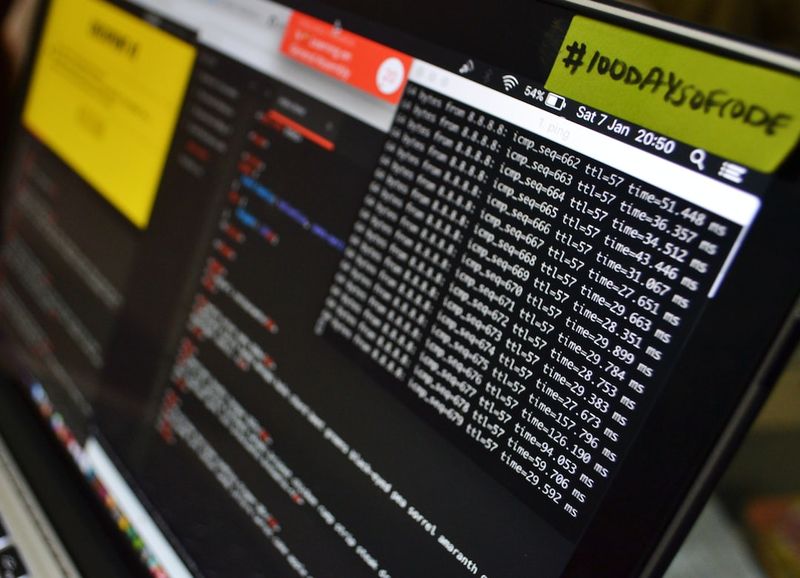On October 5, 2023, the District of Columbia Board of Elections (DCBOE) experienced a cybersecurity incident that compromised voter records. While the incident is still under investigation, DCBOE has confirmed that the breach did not compromise its internal databases and servers. The breach occurred at DataNet, a third-party services provider that offers website hosting services to DCBOE.
The breach came to light when a ransomware group called RansomedVC claimed responsibility for breaching DCBOE’s systems and exfiltrating over 600,000 lines of US voter records. The stolen information includes names, driver’s license numbers, phone numbers, birth dates, addresses, email addresses, partial Social Security numbers, voter IDs, registration dates, political party affiliation, and polling place. Most of this information is considered public, with the exception of cases where it has been made confidential in accordance with District of Columbia rules and regulations. However, RansomedVC plans to sell the stolen data, some of which cannot be obtained legally from DCBOE, to a single buyer.
### The Response and Investigation
Upon discovering the breach, DCBOE immediately launched an investigation and sought assistance from data security and federal government partners, including MS-ISAC, the FBI, DHS, and OCTO. The agency took down its website and replaced it with a maintenance page as a precautionary measure. Vulnerability scans were conducted on the agency’s database, server, and IT networks to identify any vulnerabilities that may have contributed to the breach.
DCBOE is actively working to assess the full extent of the breach and implement appropriate measures to secure voter data and systems. The agency has promised to provide additional information as it becomes available.
### Internet Security and the Vulnerability of Voter Data
This breach raises significant concerns about the security of voter data and the potential impact on individuals’ privacy and the integrity of the electoral process. Voter records contain a wealth of personal information that can be exploited for various malicious purposes, such as identity theft, fraud, and targeted phishing attacks.
While DCBOE states that most of the compromised information is typically public, it is crucial to consider the potential consequences of aggregating and exposing such data in one place. Moreover, the fact that some of the stolen data cannot be legally obtained from DCBOE highlights the importance of establishing robust security measures to prevent unauthorized access and data breaches.
### The Philosophical Debate on Voter Data Privacy
The compromise of voter records also raises philosophical questions regarding the balance between public access to information and the right to privacy. Voter information is essential for the functioning of democratic processes and is often considered public in many jurisdictions. Transparency and access to voter data enable citizens to ensure the integrity of elections and hold elected officials accountable.
However, this incident underscores the need to critically evaluate the potential risks associated with greater transparency and the aggregation of personal data. Striking the right balance between open access to public information and protecting individuals’ privacy is a complex task that requires careful consideration and continuous adaptation to evolving technological challenges.
### The Way Forward: Strengthening Cybersecurity and Safeguarding Voter Data
In light of this breach, it is crucial for organizations and government agencies to revisit and enhance their cybersecurity measures to safeguard sensitive voter data. This incident serves as a reminder that no system is immune to cyber threats, and proactive steps must be taken to mitigate the risks.
First and foremost, organizations should conduct comprehensive risk assessments to identify vulnerabilities in their systems and networks. Regular vulnerability scans, as conducted by DCBOE, can help identify and address any weaknesses promptly. Additionally, implementing multi-factor authentication, robust encryption, and regular security training for employees can significantly reduce the likelihood of successful cyberattacks.
Secondly, organizations must establish strong partnerships with data security experts and government agencies to enhance their incident response capabilities. Collaborating with agencies like the FBI, DHS, and industry-specific security organizations can provide crucial insights and resources to investigate and mitigate breaches effectively.
Lastly, organizations should prioritize the adoption of emerging security technologies and best practices, such as zero-trust network architectures, continuous monitoring, and threat intelligence sharing. Staying at the forefront of cybersecurity advancements is indispensable in addressing the evolving landscape of cyber threats.
### Editorial: A Call for Strengthening Data Protection Laws and Regulations
The breach at DC Board of Elections reinforces the urgent need for robust data protection laws and regulations that can sufficiently safeguard sensitive voter data. While the compromised information was mostly public, the incident highlights the vulnerability of personal data in an interconnected digital world.
Lawmakers must work collaboratively with cybersecurity experts and privacy advocates to ensure that data protection laws keep pace with technological advancements and the evolving threat landscape. Stricter regulations should be enacted to hold organizations accountable for implementing comprehensive cybersecurity measures and promptly disclosing any breaches that compromise personal data to affected individuals.
Moreover, individuals must also be encouraged to remain vigilant in protecting their personal information. Regularly monitoring credit reports, utilizing strong and unique passwords, and exercising caution when sharing personal information online can minimize the potential impact of data breaches.
In conclusion, the breach at DC Board of Elections serves as a stark reminder of the critical importance of internet security and data protection. This incident calls for a multi-faceted approach involving robust cybersecurity measures, strong partnerships between government agencies and data security experts, and comprehensive data protection laws to safeguard voter data. By prioritizing these measures, organizations and government agencies can mitigate the risks associated with data breaches and protect the privacy and integrity of democratic processes.

<< photo by Alex Fu >>
The image is for illustrative purposes only and does not depict the actual situation.
You might want to read !
- Why Google’s Expanded Bug Bounty Program Could Signal a New Era of Cybersecurity Collaboration
- The Brewing Crisis: Unraveling the Philippines Health Insurance Hack
- Demystifying the AI and LLM Security Landscape: Insights from vCISOs [Webinar Recap]
- Ransomware Attacks: How MGM Grand Defies the $100M Loss
- D.C. Voter Records Exposed: Online Sale Sparks Concerns of Cybercrime Threats
- The Power of Predictive Analysis: Minimizing Data Breach Risks Through Advanced Insights
- Hackers Unleash Digital Warfare in Israel-Hamas Conflict: An In-Depth Analysis
- IoT Security Concerns: Analyzing High-Severity Flaws in ConnectedIO’s 3G/4G Routers
- “The Paradox of AI Imagination: From ‘I Had a Dream’ to Generative Jailbreaks”




